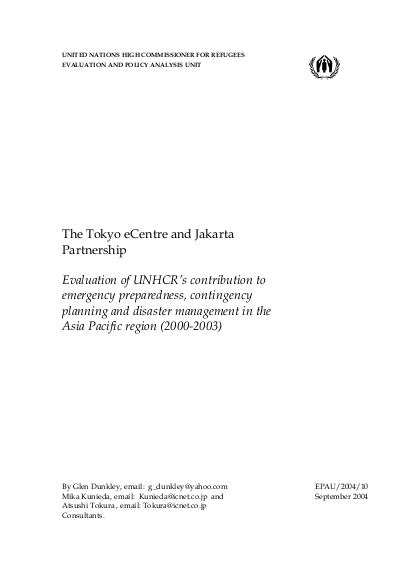
The report describes and analyses the significant achievements and value of UNHCR’s emergency preparedness and capacity building interventions in the Asia Pacific region, brought about through eCentre and Partnership activities. Over the past four years, these activities have achieved most of their stated original objectives and have also had an effect well beyond the stated objectives. The activities have had a positive impact on the learning and practice of over 2,000 participants and many agencies. Also, through these activities, UNHCR’s credibility with governments and organizations in the Asia Pacific region has improved and, thereby, has indirectly contributed to UNHCR’s overall long-term goals in Asia. There has been a large expansion of UNHCR’s network of participant and agency contacts, in effect an active emergency early-warning and response system of agencies and individuals. The report concludes that field-based emergency preparedness and capacity building (EPCB) activities in Asia should continue and become a core, integral component of a UNHCR’s long-term strategy in the Asia Pacific region. UNHCR’s EPCB activities should be clearly linked to the overall organizational goals in the region. In other words, there are direct emergency preparedness and capacity building objectives, focused on organizational and personal as well as building and maintaining an emergency preparedness and response network. But there is also a parallel longterm goal to expand, reinforce and maintain a network of good relations with government agencies, regional institutions and national NGOs (as members of civil society) in order to influence long-term refugee policies and practices.